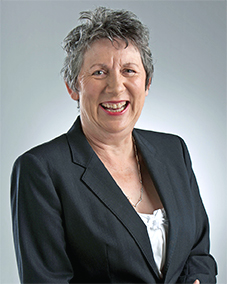NEW SOUTH WALES Leaders is driving a new era of support for the state’s business leaders as it helps to develop the next generation of innovative Australian growth businesses.
Utilising the strong support of its Industry Partners and Industry Experts networks, NSW Leaders is extending its programs across the state to help business leaders drive their organisations to success. 
NSW Leaders is the latest generation of the International Leaders organisation, which began as Queensland Leaders in 2006 and has successfully extended to Victoria and New Zealand while developing the interlinked online Leaders Resource Centre that is assisting and connecting business leaders.
Members of the inaugural year of NSW Leaders, which met for the first time in February, are already tapping in to the mentoring, networks, online learning centre and investment banking framework for business growth, said CEO Dan Liszka.
“This is a very successful program, the likes of which has never been seen before in this state,” Mr Liszka said. “It works because people who are passionate about helping to bring through the state’s next generation of exceptional business leaders are personally involved and they are putting the resources of their organisations behind NSW Leaders.
“This program is led by many of the state’s top business leaders who are paying it forward by giving their own time and resources to help elevate businesses at an early stage of development. We have launched NSW Leaders here because we have seen the great results this program and its subsequent Alumni programs have achieved in Queensland. The potential in NSW is even greater.”
Mr Liszka said even in NSW Leaders’ inaugural year, there is a strong push to assist business leaders in regional areas, through Regional Leaders strand, along with the organisation’s new Future Leaders program that assists leaders of early-stage and fast-growth companies. NSW Leaders would develop at a faster rate than the program had in Queensland, because of the business networks already in place and with the power of the recently-developed online Leaders Resource Centre, Mr Liszka said.
International Leaders executive director James Paulsen, who founded Queensland Leaders in 2006, said NSW Leaders was expected to play a pivotal role in bringing through fast-developing and innovative Australian companies – and their leadership – because of the unique characteristics of the state’s business environment.
He said the stewardship team of NSW leaders, led by Dan Liszka and supported by Darren Clarke, were vastly experienced in business mentoring and brought strong business, education and financial networks into the equation.
“What we have developed is a multi-various program to support business leaders and build capability, structured similarly to an investment banking platform,” Mr Paulsen said.
“We are particularly pleased with the interest at the moment in our Future Leaders programs – which are now also starting in other states and New Zealand – for they are immediately helping business leaders who need a structure around them to help develop their companies rapidly,” Mr Paulsen said. “Our Future Leaders program has really hit the mark in these challenging times for early-stage businesses.
“The Future Leaders series is all about assisting the leaders of these young companies and helping them to tap in to the knowledge, experience and networks of NSW Leaders when they need it.”
Mr Liszka said, “NSW Leaders selects leading private or unlisted public New South Wales companies to become Members. Members undertake a structured program over a 12 month period where they receive the knowledge, skills, networks and capital necessary to become the next generation of leading companies headquartered in the State.
“New South Wales Leaders assists Members to achieve sustainable growth, manage succession planning and evaluate entry and exit strategies for their business. Each year, up to 25 organisations are selected to engage through the Executive Series, which also includes a further two years Alumni membership.
“Further to this, up to 100 regional members participate via the Regional Series, providing ongoing professional development and networking online in linking the Executive Series content with the opportunities to expand their business.
“In addition, New South Wales Leaders also supports up to 16 Future Leaders each year. They participate in the Future Leaders Series, providing the insights and skills to ensure the foundations of their business are sound while developing the strategies and resources required to progress their opportunity,” Mr Liszka said.
LEADERS INNOVATION
Mr Paulsen said the entire Leaders network was benefitting from the innovation and new potential markets that came with careful expansion. A good example was the planned Sports Leaders program, designed to develop business acumen and future pathways for professional sports people, which had come out of discussions with Victorian Leaders CEO Robert Ford and chairman and former Australian Cricket coach John Buchanan.
“Queensland Leaders has always been a highly innovative program that could react rapidly to changes in business conditions and in meeting the progressive needs of our members,” Mr Paulsen said. “We think NSW Leaders can take this to a new level.
“Even though we have seen great success as an organisation – and our success is really in helping to facilitate the conditions that bring success to our members – we are seeing some great innovations come to fruition that will both attract new members and advance our existing members, partners and alumni.”
Mr Paulsen said the organisation was also now underpinned technologically by a versatile and rapidly developing online Leaders Resource Centre.
Apart from the online communication and networking capabilities of the system, its expanding information resource – in a mix of video, text and special report presentations – was proving to be a boon for members and partners alike. Special offers for products and services among members are also introduced through the Leaders Resource Centre.
“This platform is interconnected, so its content develops and becomes even more useful to the network as International Leaders expands,” Mr Paulsen said.
“This was always part of our strategy and we have been careful to under-promise and over deliver in terms of our digital strategy and in how we are building and delivering this powerful business knowledge resource.”
Now International Leaders is investing in a significant technology platform to assist its licensees with the roll out of their individual series.
“This will help greatly with ensuring the continuity of the structure, culture and philosophy of the initiative, and consistency with the content and outcomes delivered,” Mr Paulsen said. 
STRONG SUPPORT
NSW Leaders has the support of many of the state’s most successful and visionary business people, such as its Advisory Board of Emma Forster-Mitrovski, Dan Liszka, Tim Rossi, Jonathan Rubinsztein, Melinda Snowden, former NSW Government Minister Carl Scully and former Deputy Premier of NSW Andrew Stoner.
One of the strongest supporters of NSW Leaders is Industry Partner Jamie Pherous, whose company Corporate Travel Management was the first to IPO through the Queensland Leaders system.
Corporate Travel Management has gone on to support the new Leaders organisations in other states, while the network regularly receives presentations from other luminary partners such as Graham ‘Skroo’ Turner of Flight Centre, Martin Ward of century-old automotive retail group AP Eagers, Peter Birtles of Super Retail Group, Adrian DiMarco of TechnologyOne and Maxine Horne of Vita Group.
“I have heard Queensland Leaders described as the ‘brains trust’ of Queensland business and you’d have to say that’s quite true,” Mr Paulsen said.
“It’s great to see how our business growth and development network, with its foundations in Queensland, is being so successfully translated to other states and even international markets. Everyone is benefitting from the innovations being brought through.”
www.nswleaders.com.au
Go to the New South Wales Leaders section.
ends


 How to resolve AdBlock issue?
How to resolve AdBlock issue? 






